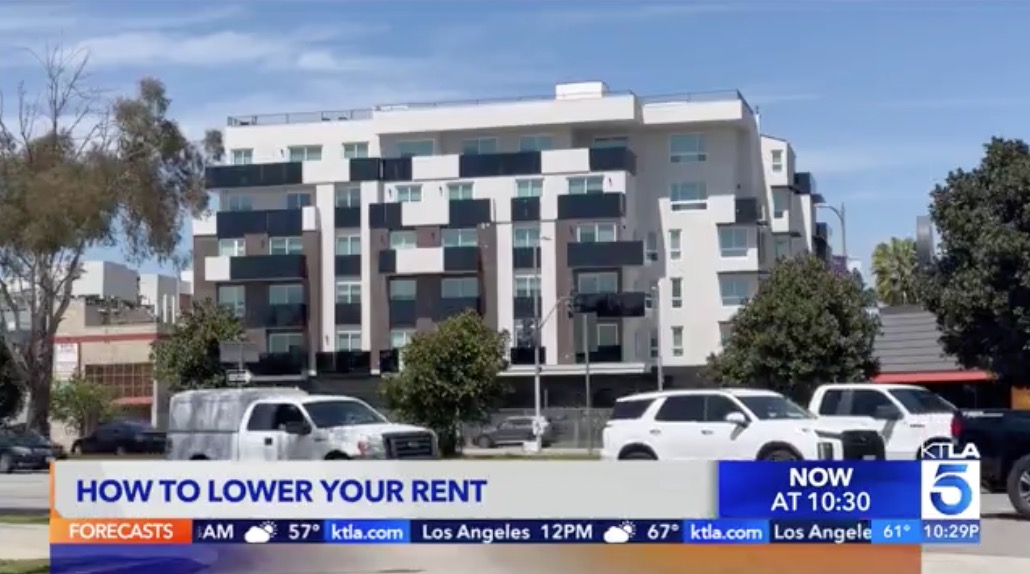Maybe you, like thousands of renters, are worried that your rental application isn’t good enough to net you a rental. When applying to rent an apartment, you might be worried about your credit score, your lack of credit history, whether you have enough income, or a prior eviction on your record. Rentals go fast these days, and it’s easy to feel doomed from the start if you don’t have a perfect tenant application.
There are other ways to score a rental, though, and one of the most common is to get a cosigner. You can check out our blog post on asking a friend or family member to be a cosigner , but we know that’s not an option for everyone. So to help those of you out, we’d like to bring cosigner companies to your attention.
What is a Cosigner Company?
To understand what a cosigner company is, you have to know what a cosigner is first. In a few words: a cosigner, or a guarantor, is a third party who signs your lease with you and legally agrees to pay your rent when you don’t. Cosigners are a form of insurance for a landlord, because the landlord can be sure they’ll get their rent payment one way or another. In other words, it’s a backup plan if you’re unable to make rent.
Often, people will ask family or friends to co-sign their lease. If you don’t want to or can’t, though, there are cosigner companies. These companies will act as your guarantor, agreeing to step in and pay rent if you don’t. To use their services, you’ll have to fill out an application, get approved, pay their service fee, and reimburse them if they do make a payment on your behalf.
Benefits of Using a Cosigner Company
There are several key reasons why people choose to use cosigner companies:
- Boosts your rental application: If you’re worried about whether your rental application is strong enough, a cosigner company’s approval can give it a little boost. A landlord might be worried about your lack of credit history or your income, but having a cosigner company sign off on your application can make up for those issues, and make you a more attractive tenant.
- Don’t have to ask family or friends to co-sign: If you need a cosigner, you might be reluctant to ask a friend or family to take on the financial responsibility, not to mention the legal responsibility, that comes with cosigning. It’s understandable, because such a burden puts your relationship at stake.
- Landlords will be certain to get their rent: The landlord looking at your application will be certain that they’ll get their rent every month, whether it’s through you or the cosigner company.
Cons of Using a Cosigner Company
There are cons to take into consideration when deciding to use a cosigner company. Here are a few of the biggest ones:
- Paying the fees: Most often, cosigner companies require you to pay a large upfront fee. If you’re having financial trouble, this extra burden might make it difficult to use a cosigner company.
- Less lenience around paying back a company: If your cosigner ends up making a payment on your behalf, you’ll have to pay them back. When your cosigner is a family member or a friend, you can decide together when you’ll be able to pay them back. They might be flexible about when you repay them because they know you personally. A cosigner company is not likely to be as lenient, and this might make things more stressful for you.
- Still can’t be certain you’ll get the rental: Getting a cosigner company’s approval is not a guarantee that you’ll get the rental. You might go through the company’s entire application process, get approved, pay the fees, and end up getting denied for the rental you wanted anyway. This might cause frustration and feel like a waste of time, energy, and money.
- Many scams: There are many scam cosigner companies out there who ask for exorbitant fees and never provide the promised guarantee. Always make sure that you’re working with a legitimate company: search for reviews and testimonials before you even apply.
Now that we’ve covered some of the pros and cons of cosigner companies, let’s go through an overview of the most reputable ones.
Insurent
Insurent is a small but well-known cosigner company. They are accepted as guarantors in 725,000 units across 7,000 apartment buildings in New York, New Jersey, Massachusetts, Illinois, Maryland, Nevada, California, Florida, and Washington, D.C. Insurent covers a number of different lease durations, from a year to two years.
To use Insurent, you will have to pay a fee ranging anywhere from 70% to 90% of a month’s rent. This means that if your rent is $1,000, your fee would range anywhere from $700 to $900. If you’re not a U.S. citizen, the fee will be larger: anywhere from 90% to 110% of one month’s rent.
To qualify for Insurent, you have to make at least 27.5x your monthly rent in a year or hold cash liquid assets worth at least 50x the monthly rent. For U.S. citizens, decent to good credit is required, but it is not required for those who are on international visas.
If you don’t make enough to meet the income requirement, you can still qualify for Insurent if you have a Responsible Party such as a father, mother, or relative who does meet the income criteria. (This means that your Responsible Party would have to make 27.5x the monthly rent in a year or hold cash liquid assets worth 50x the monthly rent of your potential apartment.)
Application
The application process for Insurent is simple: you fill out your application and send over your documents, including pay stubs, identification, bank statements, and tax returns. Insurent will also run a “soft check” on your credit, which will not impact your credit score. Should things work out, you’ll be prequalified within half an hour and fully qualified with a certificate within 24 hours.
If you have a roommate who is also a signatory on your apartment lease, they will also have to apply for and be approved for Insurent. Your incomes will be combined when your eligibility is considered, so you do not have to meet the income requirements separately. You will only have to pay one fee per lease, so you will not have to pay twice the fee in this instance.
TheGuarantors
TheGuarantors is a financial technology company that specializes in insurance. Their participating properties are in 49 states. When you buy their Rent Coverage, your landlord is the policy’s beneficiary, and you’ll qualify for the apartment you want. Your landlord will be covered for the duration of your lease, and they’ll be reimbursed if you ever fail to pay your rent. Then, you’ll reimburse TheGuarantors for covering your rent.
To use TheGuarantors, you’ll have to pay them a fee equivalent to 35%-85% of one month’s rent for a one-year lease. For instance, if your rent was $1,000, you’d pay anywhere from $350 to $850.
To qualify for TheGuarantors, you must have a yearly income of at least 27x your monthly rent and a credit score above 630. If you don’t meet these criteria, you have a couple of other options: you can provide some cash collateral or have a relative who makes 45x your monthly rent or holds liquid assets equivalent to 75x the monthly rent.
During your application, you’ll need to provide government identification and proof of income. Your decision should come back fairly quickly––sometimes they come back on the same day.
You and your roommates must both be approved for TheGuarantors to have your lease covered, but you only need to purchase one Rent Coverage between you to cover your lease.
Leap
Leap is another cosigner service. Since they mostly find their business through referrals, they don’t offer a list of partner properties, but they do offer to reach out to the building you would like to live in to see if that building will work for Leap. Their “agile rent service” is different from the other services we’ve discussed so far. They will qualify your application when you don’t meet eligibility requirements, like other cosigners do. However, Leap won’t cover your rent if you miss a payment. Instead, your landlord will have to file claims with Leap to cover your missing rent only after you’ve been evicted from the apartment and the apartment has been repossessed. Therefore, you should not expect rent coverage for your missed payments during the duration of your lease from Leap.
To use Leap, you’ll need to pay a fee equivalent to 4-8.5% of your annual rent. This is a one-time, upfront fee.
Leap is unclear about their eligibility requirements in terms of credit and income. Their application process involves identification, pay stubs, tax returns, and visas if you have one, but it is quick to complete and can be done entirely online. The turnaround time varies, but they say that most of their applicants are ready to move in on the same day that they apply.
Signatory roommates will also have to apply for Leap if you choose to use it, but you will only have to pay the fee once to guarantee your lease.
OneApp Guarantee
OneApp is another cosigner service, and they also don’t offer a list of partner properties. They do offer to reach out to the building you’re interested in if you would like to use their service, however. They act as cosigners when you don’t meet a building’s eligibility criteria.
OneApp is unclear about exactly what their own criteria are for approval, but they describe the criteria as “compassionate.” They say that on working days, they can turn your application around in 24 hours.
If your lease is a year or shorter, your fee will be a month’s rent. If your lease is longer than a year, you will pay whatever you owe in rent over the entire duration of your lease, divided by twelve. For example, if your lease is 15 months long, and you pay $1,000 in rent, you would pay $15,000 in rent over the entire duration of your lease. You’d divide $15,000 by 12, which is $1,250, and this would be the fee you’d pay OneApp.
Signatory roommates will also have to apply for OneApp, but you will only have to pay the fee once to guarantee your lease.
We know that eligibility requirements often prevent wonderful renters from finding their dream homes. Hopefully, this list of cosigner companies helps you find a path towards the best rental possible.
Additional frequently asked questions about cosigner companies:
Does a guarantor cover all tenants?
Typically, a cosigner company will cover all of the tenants on a lease. Policies may differ by company, so check with the guarantor you are working with before you sign on with them.








